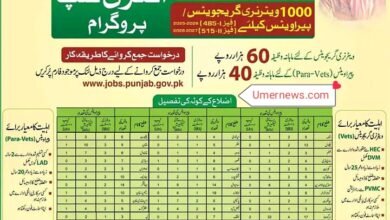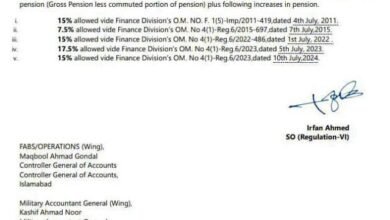Punjab Schools Meal Program: Boosting Student Health & Learning
Punjab Schools Meal Program: Boosting Student Health & Learning
Punjab Schools Meal Program: Boosting Student Health & Learning
Discover how the Punjab Schools Meal Program is improving student nutrition and academic performance in Pakistan. Learn about its goals, impact, and future.
Punjab Schools Meal Program: Boosting Student Health & Learning
The Punjab government’s new initiative, the Punjab Schools Meal Program, is set to make a significant impact on thousands of students across the province. Access to nutritious food is a fundamental right, and this program aims to ensure that no student has to face the school day on an empty stomach. By providing healthy meals, this initiative hopes to tackle issues like malnutrition and improve student concentration, attendance, and overall academic performance. This blog post will break down everything you need to know about the Punjab Schools Meal Program, from its goals and participating districts to its long-term benefits for the youth of Pakistan.
What is the Punjab Schools Meal Program?
The Punjab Schools Meal Program is a government-led welfare initiative designed to provide free, nutritious meals to students in eight specific districts: Bhakkar, Bahawalnagar, DG Khan, Layyah, Mianwali, Muzaffargarh, RY Khan, and Rajanpur. The program is part of a broader effort to improve the quality of education and support the health and well-being of students, particularly in underserved regions. The first steering committee meeting for this program, held on August 25, 2025, focused on key aspects of implementation, including meal pack design, biscuit wrapper collection, and delivery timelines.
Goals of the School Meal Program in Punjab
The core mission of the Punjab Schools Meal Program goes beyond simply feeding students. It’s a comprehensive approach to child development and educational reform. Key objectives include:
- Improving Student Health: Providing balanced meals helps combat malnutrition and nutrient deficiencies, leading to better physical health.
- Enhancing Academic Performance: A well-fed student is better able to concentrate, learn, and retain information in the classroom.
- Increasing School Attendance: Offering free meals can act as a powerful incentive for families to send their children to school regularly.
- Promoting Food Security: The program contributes to food security at the household level by ensuring children have at least one nutritious meal a day.
This initiative also involves third-party monitoring to ensure transparency and effectiveness, a crucial step toward building public trust in government welfare programs. For more information on the program’s scope and budget, you can visit the CM Special Monitoring Unit’s official page.
The Importance of Student Nutrition
The link between student nutrition and educational success is undeniable. Children who have access to regular, healthy meals are more likely to perform well in school. Here’s how:
- Cognitive Function: Proper nutrition fuels the brain, improving memory, focus, and problem-solving skills.
- Behavioral Improvements: Hunger can lead to irritability and behavioral issues. A full stomach helps students remain calm and engaged.
- Stronger Immune Systems: Nutritious food boosts immunity, reducing sick days and keeping students in class.
By addressing these basic needs, the Punjab education initiatives can create a more conducive learning environment for all students. This is a topic that is gaining national attention, with multiple stakeholders working together to expand these efforts, as highlighted in a recent World Food Programme (WFP) report.
What Makes This Program Different?
The Punjab Schools Meal Program stands out due to its focused approach and strategic implementation plan. Unlike broader food aid programs, this initiative is specifically tailored to the school environment. The first steering committee meeting highlighted critical operational details, such as:
- Design and Branding: The focus on well-designed meal packs and biscuit wrappers indicates a professional, well-thought-out approach.
- Logistics and Delivery: The emphasis on a clear “Delivery Timeline” and “Program Launching” plan shows a commitment to getting the program up and running efficiently.
- Accountability: The plan to hire a “Third Party Monitoring Firm” adds a layer of accountability and ensures the program’s success is measured accurately.
This level of detail demonstrates the government’s dedication to creating a sustainable and impactful school lunch program in Pakistan.
FAQs about the Punjab Schools Meal Program
Q1: Which districts are included in the Punjab Schools Meal Program?
The program is being implemented in eight districts: Bhakkar, Bahawalnagar, DG Khan, Layyah, Mianwali, Muzaffargarh, RY Khan, and Rajanpur. These areas were selected to ensure the program benefits students in different parts of the province.
Q2: Who is responsible for overseeing the program?
The program is overseen by a Project Steering Committee, with the Secretary of the School Education Department as its chairman. This committee includes representatives from various government departments to ensure broad oversight and collaboration.
Q3: What types of food will be provided to students?
The meeting agenda mentioned “Meal Packs” and “Biscuit Wrappers,” suggesting a combination of a main meal and a snack. The exact contents will be decided by the committee to ensure they are both nutritious and appealing to students.
Q4: How will the program’s success be measured?
A key part of the program is the hiring of a third-party monitoring firm. This firm will be responsible for evaluating the program’s effectiveness, which will likely involve tracking student attendance, health metrics, and academic performance.
Q5: Is this program a permanent initiative?
The current announcement focuses on the initial launch and implementation. The long-term status of the program will likely depend on its initial success and evaluation by the steering committee and monitoring firm.
Q6: How will food waste and recycling be managed?
The meeting agenda specifically mentioned the “Collection and Recycling of Biscuit Wrappers,” indicating that waste management is a planned component of the program’s logistics to promote sustainability.
Q7: How can the public get more information about the program?
Further details about the Punjab Schools Meal Program will likely be released by the government’s education department. The program’s progress and official announcements can be found through official government channels and trusted news sources.
Conclusion
The launch of the Punjab Schools Meal Program is a promising step forward for education and health in the province. By prioritizing student nutrition, this initiative has the potential to create a ripple effect, improving not just academic results but also the overall well-being of the next generation. It’s a clear example of how strategic government initiatives can lead to tangible, positive change. For more on the global evidence of school meal programs and their impact on children’s health and learning, you can refer to the World Bank’s research.
What are your thoughts on this program? Share your opinion in the comments below!









